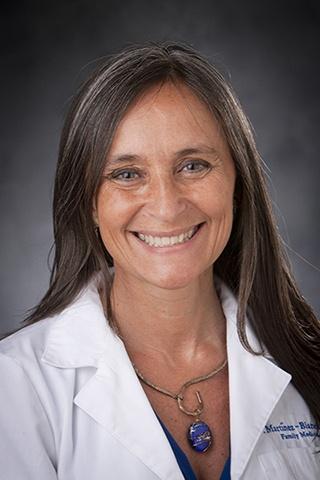I walk the hallways of the United Nations’ Palais des Nations in Geneva, Switzerland, and I am overcome by a sense of awe as I think of the historic significance of the place, the many global political decisions debated in its chambers and actions that have changed the course of the lives of entire populations.

I am here in my role of World Organization of Family Doctors’ (WONCA)-World Health Organization (WHO) liaison — together with WONCA President Amanda Howe, President-elect Donald Li and CEO Garth Manning — representing WONCA at the World Health Assembly. We carry the voices of family medicine doctors worldwide, and through them the millions of families we care for.
As I walk around, I hear multiple languages being spoken; I understand some of them and I can only interpret the music of others, the intent and inflection of the words spoken. People young and old have come to Geneva with the desire to improve health in the world as a unifying core value, regardless of origin, creed, socioeconomic level, or geography. Delegates are from every country, and NGOs representing interests relevant to health, many as official consultants and partners with the World Health Organization.
There are dignitaries and health ministers from several countries, often walking surrounded by their staff, who are scheduling endless meetings that may end in strategic collaborations and alliances. It appears that most of these health ministers are trained physicians with a love for public health, and an understanding of the clinical and public health sectors. I wonder how many of them have been exposed to family medicine. Are they aware of the depth and breadth of the specialty?
Student Involvement
During our time in Geneva I have been talking a lot with the representatives from the International Federation of Medical Students Associations (IFMSA), young medical students eager to make a difference in the world. They ask me what can be done to involve more U.S. medical students. Throughout our conversations, I learn many of these medical students are interested in becoming family physicians, eager to become involved in improving the health of communities worldwide. Representatives from every region of the world and many Canadians are here. Students representing pharmacy schools, dental schools, nursing schools, and some U.S. physician assistant and public health schools are here as well.
The students and young physicians are leading many advocacy efforts, and have drafted declarations on important issues regarding migrant work, human rights, workforce development, and the role of youth in the fight against non-communicable diseases. They also have held several side events; WHO has highlighted the importance of this generation, as it takes on the 2030 Agenda for Sustainable Development, and involves them in the Global strategy on human resources for health: Workforce 2030.
WONCA Statement
As WONCA representatives, our team held many meetings with WHO officers, highlighting opportunities for collaboration. And I participated as a Non-State-actor during the hearings for “A70/18 Human resources for health and implementation of the outcomes of the United Nations’ High-Level Commission on Health Employment and Economic Growth” commenting on the Report by the Secretariat with the following words written together with our WONCA leadership:
The World Organization of Family Doctors (WONCA, see www.globalfamilydoctor.com ) represents members from more than 150 countries in all regions of the world, and brings together those who are committed to developing family medicine as a key discipline for stronger and more effective health systems. We welcome the World Health Organization’s commitment to supporting reforms in the health workforce, particularly welcoming Recommendation 4 of the Action Plan which focuses on the development of the primary health care sector. We note the statement in the Global Strategy on Human Resources for Health that “… Adequate investment in the health-care workforce, including general practice and family medicine, is required to provide community-based, person-centred, continuous, equitable and integrated care.”
We recommend that, to meet the full recommendations and achieve the outcomes desired, all parties recognize that family medicine is the key specialty whose competencies and scope of practice allow comprehensive, coordinated and person centred care that meets multiple medical needs for patients and communities over time. Family doctors, working with other primary healthcare workers, can integrate patient needs for prevention, acute and chronic care across disease groups, in a way that centers care on the particular individual, family and their context. When appropriately trained and working within an adequately resourced clinical setting, family doctors have been shown to be both cost-effective, valuable and able to improve health outcomes for entire populations. All countries have the potential to transform their health workforce by training more family doctors as a critical part of a multidisciplinary team providing integrated, people-centred primary health care – the foundation of universal health coverage. WONCA commits our organization to continuing to work with WHO and its constituencies in Member States to achieve these outcomes, as it does to achieve the overall goal of health for all.
I was nine years old when I learned about the World Health Assembly from an encyclopedia, and at that time, I told my dad that one day I would get to Geneva and work to make a difference in the world. It took several decades, and I have found family medicine to be the most important vehicle to contribute to improving health equity — in the U.S. and the world.
Viviana Martinez-Bianchi is program director of the Duke Family Medicine Residency Program. Email viviana.martinezbianchi@dm.duke.edu with questions.
Editor’s note: A member of the Duke Family Medicine Residency Program leadership team guest blogs every month. Blogs represent the opinion of the author, not the Duke Family Medicine Residency Program, the Department of Community and Family Medicine or Duke University.
